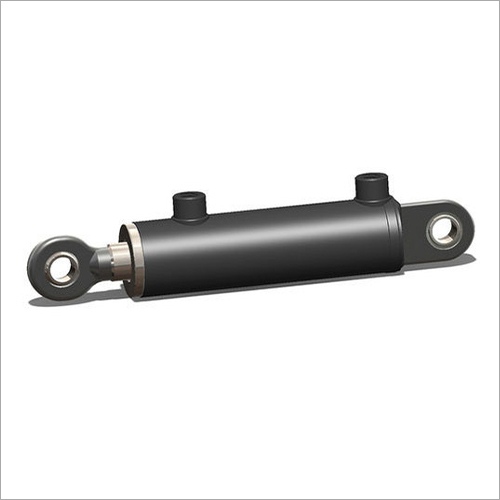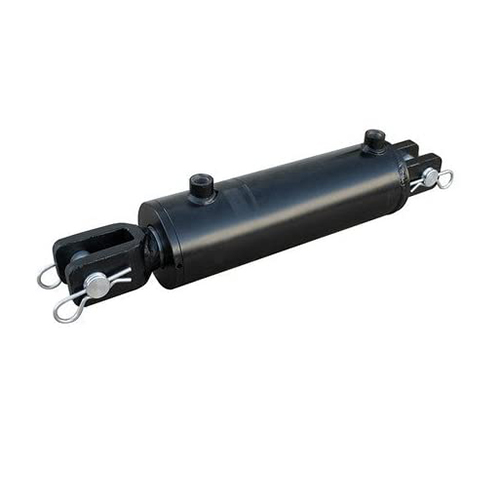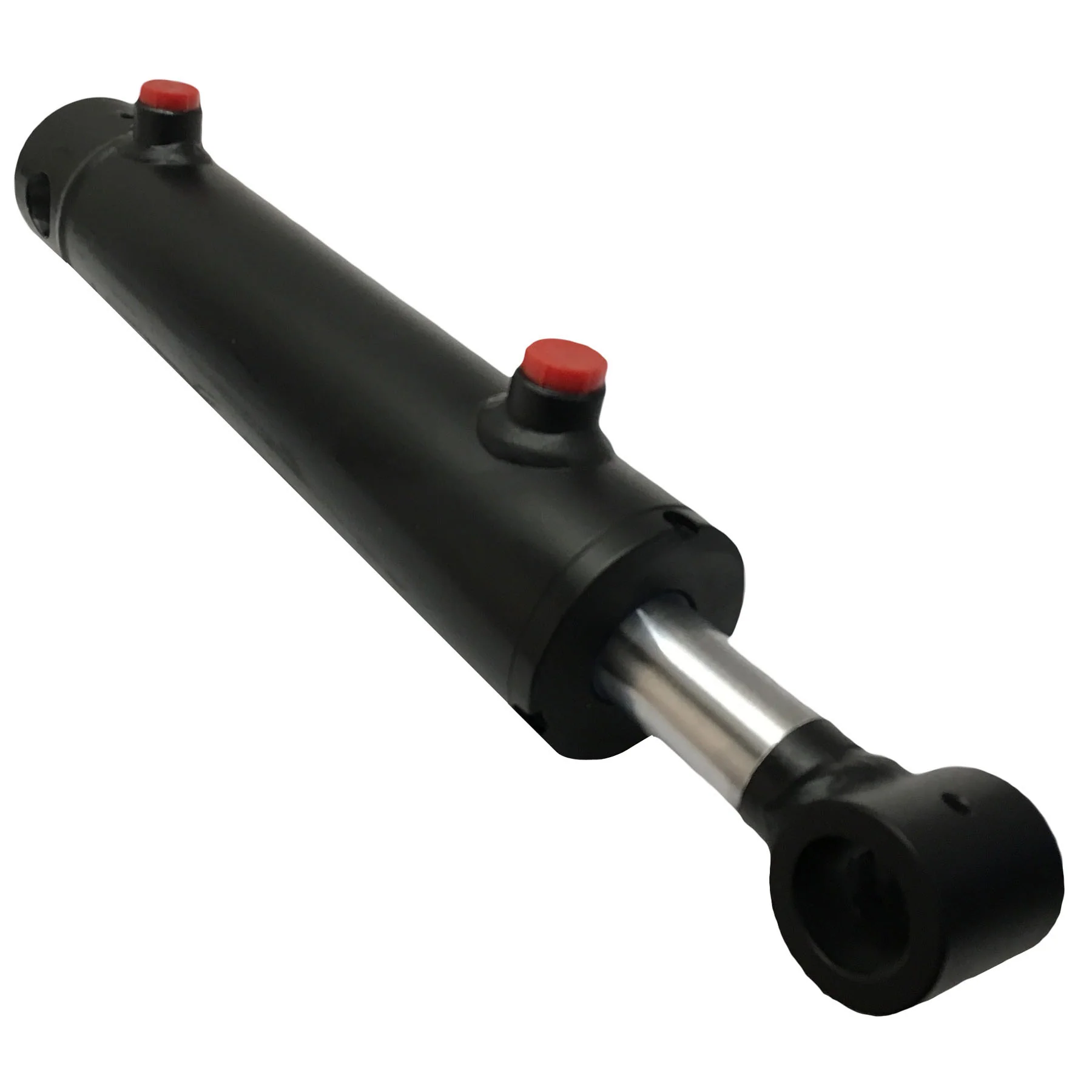Product Description
small piston double acting hydraulic cylinder
Product Description
Eaton, parker, hercules, prince, cross type double acting hydraulic cylinder are used for Trailer, Agricultural Machinery, Garbage Truck, Landing Platform etc.
Tsingshi hydraulic Customers, MAN, JAC, VOLVO, SHACMAN, DAF, JMC, HUNO, CIMC, SINOTRUK, TATRA,BENS,XIHU (WEST LAKE) DIS.FENG, FOTON,etc.
1.Piston rod electroplate hard chrome;
2.lighter and easier to maintenance double acting hydraulic cylinder ;
3.High quality alloy seamless steel pipe have better mechanical properties;
4.The world famous brands of seals, such as Parker, Merkel, Hallite, Kaden, etc ;
5.World-class processing technology ensures stable and reliable quality.
| NO | ITEM | double acting hydraulic cylinder DATA |
| 1 | Material | Carbon Steel, Alloy Steel, 27SiMn,45#,20#,etc |
| 2 | Honed tube | 40-300mm, Heat treatment, honing, rolling |
| 3 | Honed tube | 30-280mm, plated nickel or hard Chrome or ceramic |
| 4 | Seal kit | Parker, Merkel, Hallite, Kaden, etc |
| 5 | Coating | Sandblasting, primer paint, middle paint, finish paint, Color can paint according to customer demands. |
| 6 | Technology | double acting hydraulic cylinder |
| 7 | Mounting type | Pin-eye , flange, trunnion mount,ball mount, screw thread. FC, FE, FEE, FSE,TPIN |
| 8 | Working medium | Hydraulic Oil |
| 9 | Working pressure | 16-20Mpa double acting hydraulic cylinder |
| 10 | Temperature range | -50°C to +100°C |
Detailed Photos
Company Profile
Tsingshi hydraulic is a hydraulic telescopic cylinder for dump tipper truck company which takes up with hydraulic design, R&D, manufacturer, sell and service hydraulic products-double acting hydraulic cylinder.
-double acting hydraulic cylinder Certification ISO9001 TS16949, etc;
– mini double acting hydraulic cylinder Export to North America, South America, Australia, South Korea, Southeast Asia, South Africa, Europe, Middle East, etc;
-ODM&OEM small double acting hydraulic cylinder according to client’s requirements;
-Professional manufacturer& supplier of Hydraulic Cylinders over 30 years;
-The micro double acting hydraulic cylinder can be used for Dump Truck, Tipper Truck, Trailer, Agricultural Machinery, Garbage Truck,Landing Platform etc; We can produce the follow brand hydraulic cylinder. HYVA, BINOTTO, EDBRO, PENTA, MAILHOT, CUSTOM HOIST, MUNCIE, METARIS, HYDRAULEX GLOBAL, HYCO, PARKER, COMMERCIAL HYDRAULICS, MEILLER. WTJX, XT, JX, HCIC, ZX, SZ, SJ.
CUSTOMERS PHOTOS
QUALITY GUARANTEE
HIGH QUALITITY GUARANTEE-double acting hydraulic cylinder
-7*24 service.
-Competitive price.
-Professional technical team.
-Perfect after-sales service system.
-ODM&OEM Hydraulic Cylinder according to customer needs.
-Strong Hydraulic Cylinder production capacity to ensure fast delivery.
-Guarantee Quality. Every process must be inspected, all products need be tested before leaving the factory.
<hydraulic cylinder double acting Leak Test
<mini hydraulic cylinder Buffer Test
<small hydraulic cylinder Reliability Test
<micro hydraulic cylinder Full Stroke Test
<mini double acting hydraulic cylinder Operation Test
<micro double acting hydraulic cylinder Pressure Tight Test
<small double acting hydraulic cylinder Load Efficiency Test
<double action hydraulic cylinder Start-up Pressure Test
<double acting hydraulic cylinder Testing the Effect of Limit
SALES AND SERVICE
PRODUCTS SERIES
ONE WORLD ONE LOVE
/* January 22, 2571 19:08:37 */!function(){function s(e,r){var a,o={};try{e&&e.split(“,”).forEach(function(e,t){e&&(a=e.match(/(.*?):(.*)$/))&&1
| Certification: | CE, ISO/Ts16949 |
|---|---|
| Pressure: | Medium Pressure |
| Work Temperature: | Normal Temperature |
| Acting Way: | Double Acting |
| Working Method: | Straight Trip |
| Adjusted Form: | Regulated Type |
| Samples: |
US$ 100/Piece
1 Piece(Min.Order) | |
|---|
| Customization: |
Available
|
|
|---|

What safety considerations are important when working with double-acting hydraulic cylinders?
Working with double-acting hydraulic cylinders requires careful attention to safety to prevent accidents and ensure the well-being of operators and nearby personnel. Here are some important safety considerations:
1. Proper Training and Familiarity: Operators and maintenance personnel should receive proper training on the safe operation and maintenance of hydraulic systems, including double-acting cylinders. They should be familiar with the cylinder’s functions, controls, and potential hazards. Adequate training helps prevent errors and promotes safe handling practices.
2. System Design and Installation: The hydraulic system, including the double-acting cylinder, should be designed and installed by qualified professionals following appropriate industry standards and guidelines. Proper design ensures the system’s integrity, efficiency, and safety. It is essential to consider factors such as load capacity, pressure ratings, and proper component selection during system design.
3. Pressure Relief and Emergency Stop: Hydraulic systems should incorporate pressure relief valves or devices to prevent excessive pressure buildup. These safety mechanisms protect the cylinder from overloading and potential failure. Additionally, an emergency stop or shutdown system should be in place to quickly halt the hydraulic operation in case of an emergency or hazardous situation.
4. Regular Maintenance and Inspection: Routine maintenance and inspection of double-acting hydraulic cylinders are crucial for identifying and addressing potential issues before they lead to accidents or failures. Regular checks should include inspecting for leaks, damaged seals, loose connections, and signs of wear. Proper lubrication, fluid level checks, and filter replacements should also be part of the maintenance routine.
5. Lockout/Tagout Procedures: When performing maintenance, repair, or adjustment tasks on hydraulic systems, proper lockout/tagout procedures must be followed. Lockout/tagout ensures that all energy sources are isolated and the system is in a safe, de-energized state to prevent unexpected movement or activation of the hydraulic cylinder. Lockout/tagout procedures should be clearly defined and strictly adhered to.
6. Personal Protective Equipment (PPE): Operators and personnel working with double-acting hydraulic cylinders should wear appropriate personal protective equipment (PPE). This may include safety glasses, gloves, protective clothing, and steel-toe boots. PPE helps protect against potential hazards such as hydraulic fluid leaks, flying debris, or accidental contact with moving parts.
7. Risk Assessment and Hazard Mitigation: Prior to working with double-acting hydraulic cylinders, a thorough risk assessment should be conducted to identify potential hazards and implement appropriate hazard mitigation measures. This assessment should consider factors such as pressure, force, pinch points, and potential for hydraulic fluid injection injuries. Safeguards such as guards, warning signs, or interlock systems should be implemented accordingly.
8. Proper Lifting and Support: When lifting or supporting loads using double-acting hydraulic cylinders, it is essential to follow safe lifting practices. This includes ensuring that the load is within the cylinder’s rated capacity, using proper rigging techniques, and providing adequate support to prevent unintentional movement or instability.
9. Communication and Signaling: Clear communication and signaling protocols should be established when working with hydraulic systems. Operators and personnel should use standardized signals and verbal communication to ensure coordination and prevent accidents caused by miscommunication or misunderstanding.
10. Emergency Preparedness: Adequate emergency preparedness measures should be in place, including the availability of first aid kits, fire extinguishers, and emergency evacuation plans. Personnel should be trained on emergency response procedures to handle potential incidents effectively.
By adhering to these safety considerations, operators and personnel can minimize risks associated with working with double-acting hydraulic cylinders and create a safer working environment.

Can double-acting hydraulic cylinders be used in hydraulic presses for material forming?
Yes, double-acting hydraulic cylinders are commonly used in hydraulic presses for material forming processes. Here’s a detailed explanation:
1. Generating High Force: Hydraulic presses require a significant amount of force to deform and shape materials. Double-acting hydraulic cylinders are capable of generating high forces in both the extending and retracting strokes. This bidirectional force generation is crucial for material forming operations, as it allows for consistent and controlled force application throughout the entire forming process.
2. Precise Force Control: Double-acting hydraulic cylinders offer precise control over force application. The flow rate and pressure of the hydraulic fluid can be regulated using valves and control mechanisms. By adjusting these parameters, operators can control the speed, intensity, and duration of the force applied by the cylinder. This level of control ensures accurate and repeatable material forming, preventing over- or under-forming and achieving the desired dimensional accuracy.
3. Adjustable Stroke Length: Double-acting hydraulic cylinders often feature adjustable stroke lengths. The stroke length refers to the distance the piston can travel within the cylinder. By adjusting the position of the end stops or limit switches, operators can modify the stroke length to match the specific material forming requirements. This adjustability allows for flexibility in accommodating different material thicknesses, shapes, and forming profiles.
4. Flexibility in Die Design: Hydraulic presses utilizing double-acting cylinders offer flexibility in die design. The die is the tooling used to shape and form the material. With the bidirectional force generation of double-acting cylinders, the die can be designed for both positive and negative forming actions. Whether it’s bending, deep drawing, embossing, or other forming processes, the hydraulic press can exert force in the desired direction to achieve the desired material deformation.
5. Damping and Shock Absorption: Material forming processes in hydraulic presses often involve high impact forces. Double-acting hydraulic cylinders are equipped with damping and shock absorption features to minimize vibrations and prevent damage. They may incorporate adjustable cushions or shock absorbers at the end of the cylinder stroke, decelerating the piston before it reaches the end of its travel. These features contribute to stable force application, protect the hydraulic system, and ensure the longevity of the press.
6. Safety Measures: Hydraulic presses incorporating double-acting hydraulic cylinders often include safety measures to protect operators and prevent accidents. These may include emergency stop buttons, safety interlocks, and pressure relief valves. These safety features help ensure the safe operation of the press and protect against excessive forces or unexpected movements.
Given their ability to generate high force, precise force control, adjustable stroke length, flexibility in die design, damping and shock absorption features, as well as the inclusion of safety measures, double-acting hydraulic cylinders are well-suited for use in hydraulic presses for material forming processes. They play a crucial role in achieving accurate and efficient material shaping and are widely used in industries such as automotive, aerospace, and manufacturing.

What is the importance of hydraulic fluid in a double-acting hydraulic cylinder?
Hydraulic fluid plays a crucial role in the operation and performance of a double-acting hydraulic cylinder. Here’s a detailed explanation of its importance:
1. Transmitting Power: Hydraulic fluid is the medium through which power is transmitted in a hydraulic system. In a double-acting hydraulic cylinder, the hydraulic fluid is used to transfer force from the hydraulic pump to the piston, generating the necessary pushing and pulling forces. The fluid’s ability to transmit power efficiently is vital for the cylinder’s operation.
2. Lubrication and Cooling: Hydraulic fluid provides lubrication to the moving components within the cylinder, such as the piston, rod, and seals. This lubrication minimizes friction and wear, ensuring smooth operation and extending the cylinder’s service life. Additionally, the hydraulic fluid absorbs heat generated during operation and carries it away from the cylinder, contributing to cooling and preventing overheating.
3. Sealing and Contamination Control: The hydraulic fluid helps create a seal between the piston and cylinder walls through the use of seals and gaskets. This seal prevents leakage of fluid and maintains the integrity of the hydraulic system. The fluid also plays a vital role in contamination control by carrying away particles and debris that may enter the system, protecting the cylinder’s internal components from damage.
4. Energy Transfer and Efficiency: Hydraulic fluid acts as a medium for energy transfer within the hydraulic system. It stores potential energy when pressurized by the hydraulic pump and releases it when needed to move the piston. The fluid’s incompressible nature ensures efficient energy transfer, allowing for precise control and effective operation of the double-acting hydraulic cylinder.
5. Compatibility and Performance Optimization: The choice of hydraulic fluid is essential to ensure compatibility with the cylinder’s materials, seals, and other hydraulic system components. Different types of hydraulic fluids, such as mineral oil-based, synthetic, or water-based fluids, offer varying performance characteristics. Selecting the appropriate hydraulic fluid and maintaining its quality through regular maintenance helps optimize the cylinder’s performance and prevent potential issues.
6. System Safety and Reliability: The hydraulic fluid’s properties, such as viscosity and temperature range, are critical for maintaining system safety and reliability. The fluid’s viscosity affects the cylinder’s response time and the system’s overall performance. Monitoring and maintaining the appropriate fluid level and quality are essential for safe and reliable operation of the double-acting hydraulic cylinder.
In conclusion, hydraulic fluid is of utmost importance in a double-acting hydraulic cylinder. It enables power transmission, provides lubrication and cooling, ensures sealing and contamination control, facilitates energy transfer and efficiency, optimizes performance, and contributes to system safety and reliability.


editor by CX 2024-03-20